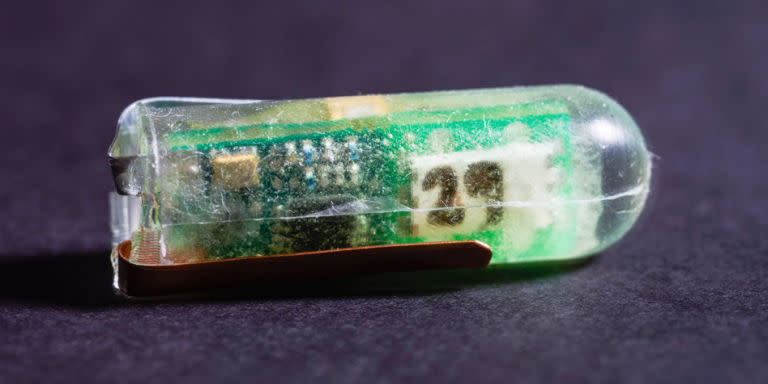A Tiny Sensor Powered by Stomach Acid

The acid in your stomach can break down foods, but it could also be used to power electronics. A team of researchers from MIT and Brigham and Women's Hospital have developed a tiny generator that can be powered by stomach acid, and could be used to run sensors or deliver drugs.
The team has previously developed small swallowable devices including sensors that can detect heart rate or blood pressure and devices that can deliver drugs to treat various diseases. However, these devices were powered by small batteries which were costly and potentially hazardous.
[contentlinks align="left" textonly="false" numbered="false" headline="More%20Health%20Tech" customtitles="The%20Connected%20Heart%20Can%20Text%20Your%20Doc%7CStartup%20Replaces%20Your%20Blood%20with%20Teenage%20Blood%7CWearable%20Tech%20Will%20Tell%20You%20When%20to%20See%20the%20Doc" customimages="||" content="article.24391|article.24774|article.24737"]
The new technology replaces the battery with a small voltaic cell powered by the acids in the stomach. The acids can conduct a small electric charge, which is enough to power the device's electronics. In tests, the device could power a small temperature sensor for several days, and wirelessly send data back to a monitoring station every 12 seconds.
In the small intestine, there is less acid than in the stomach, so the device can only generate about 1 percent as much power. But there is still enough energy to power the sensor and send data back at less frequent intervals.
The researchers' next goal is to miniaturize the device by combining the various components into a single integrated circuit. From there, they plan to add additional sensors and increase the amount of time the device can spend inside the body. Their hope is for their technology to be able to spend weeks continually taking measurements.
Source: MIT
You Might Also Like

